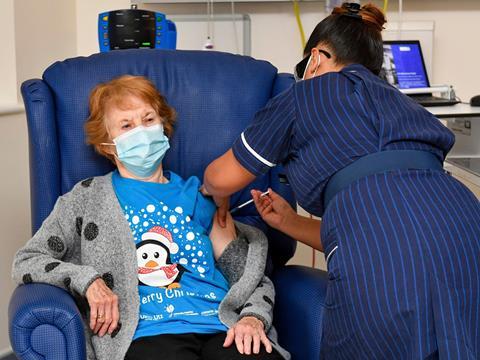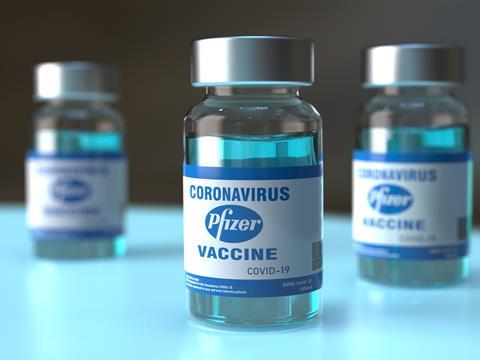
Serialisation expert Christoph Krähenbühl of Excellis Health Europe explores the potential vulnerabilities in the COVID vaccine supply chain.
On Friday 19th December 2020, Swissmedic became the second regulator in Europe to approve Pfizer/BioNTech’s mRNA COVID-19 vaccine - the first vaccine developed in the western world, after the UK’s MHRA announcement on 2nd December.
The decision by Switzerland’s regulatory authority marks an important milestone because, unlike the temporary supply permission given by the UK MHRA for an initial number of batches, the Swiss regulator has granted Pfizer/BioNTech’s vaccine, under the brand name Comirnaty, a regular marketing approval. The Swiss decision therefore constitutes the world's first approval following an ordinary marketing authorisation procedure.
Since then, things have moved on in the EU as well, with the European Commission’s conditional marketing approval for Comirnaty on 24th December 2020 and the European Medicines Agency’s (EMA) Committee for Medicinal Products for Human Use (CMPH) recommendation for approval of the Moderna vaccine on 6th January 2021.
These developments clearly mark a long-awaited turning point in the fight against this pandemic, even though the roll-out of vaccinations will need to gather significant pace.
More dark clouds on the horizon
There will be new battles ahead, as recent warnings by Interpol and Europol about the emerging threats of counterfeit vaccines show; the rush to bring the vaccine to patients as quickly as possible must not be at the cost of jeopardising the security of the medicines supply chain.
It could, of course, be argued that threats are negligible in Europe where the supply chain for regulated medicines is highly secure, in no small part thanks to the European Medicines Verification System (EMVS) that has been established to fulfill the requirements of the EU Falsified Medicines (EU-FMD) directive.
The EMVS provides a very high level of protection against counterfeiting (and other criminal activities) but – and this is an important ‘but’ – only if the products are supplied in compliance with the EU-FMD/EMVS processes.
All medicines supplied, including COVID vaccines, need to be serialised and tamper-evidenced. Additionally, their unique identifiers (UIs) must be recorded twice; once when the UIs are uploaded to the European Hub at the time of batch release, and again at the point of dispense, when every pack UI is checked against the appropriate National Medicines Verification System.
A good shot - but no silver bullet
There may be calls to bypass these additional hurdles in order to rush out the long-awaited vaccines as quickly as possible. This is understandable, and it is likely that temporary exemptions may be granted for the first batches of vaccines.
However, extending such exemptions beyond the initial batches would negate the full protection that the EU-FMD offers. It may be tempting to seek to avoid these obligations often portrayed as ‘onerous’ in the face of a novel and extraordinary situation, but this will ultimately deprive patients of the security that the EU-FMD and the EMVS system and processes have established.

It is reassuring to see that the labelling appendix to the product information for both the BioNTech/Pfizer and the Moderna vaccine specify the application of a 2D DataMatrix carrying the EU-FMD’s Unique Identifier (Annex IIIA, section 17) for the purpose of serialisation.
AstraZeneca’s vaccine - authorised in the UK on 30th December 2020 - is also serialised, although the EU-FMD no longer applies to most of the UK (England, Scotland, and Wales) after the UK’s exit from the European Union, and there is therefore no longer the facility for end-users in Great Britain to be connected to the EMVS - although the EU-FMD infrastructure and practice remain in place in Northern Ireland.
While the regular supply chain will offer a solid degree of protection for patients, it will - as always - be the most vulnerable part of the supply chain and population that are preyed upon by counterfeiters. This is why brand protection must be integrated as a key element in the commercialization of sensitive, and sadly less sensitive, products.
At the forefront of that battle, the Excellis brand protection team keeps hammering this hard truth: hoping to be safe from counterfeiting is not a strategy. Recognising that the EU-FMD provides solid protection, there is no denying that the EMVS obligations will bring novel challenges for COVID vaccinations across Europe.
COVID vaccines will be dispensed in the course of a mass-vaccination programme, the likes of which has never been seen before. This means large numbers of products will be dispensed in a very short time, often in different locations, by different actors, using different protocols to regular medicines.
The EU-FMD has foreseen this, and there are provisions in the Delegated Regulation (Article 23) giving member states the scope to allow for medicines to be dispensed outside hospitals or pharmacies in non-routine supply scenarios. At the latest count, 11 EU member states have indicated they may want to make use of these provisions to be able to vaccinate as many people as possible, as quickly as possible.
EU alerts: a dark lining to the silver cloud
While this must be welcomed, we at Excellis are concerned that a perfect storm is going to hit the industry. A combination of new players, dispensing large numbers of products in non-standard scenarios and at locations where the scanning technology and processes have not yet been established as routine, is highly likely to generate a spike of EU-FMD alerts that manufacturers will need to deal with.
There is a real concern that many manufacturers are, even today, ill-prepared to deal with the routine number of EU-Alerts in a timely manner and that they will be swamped by a flood of new alerts that are likely to arise due to technical issues, processing errors and – inevitably – human error.
Ignoring these alerts, even if the vast majority are going to be false alerts, is not an option, and manufacturers must ensure that their organisations and processes are ready to scale and flex up to this additional challenge they face once the vaccine roll-out begins in earnest.













